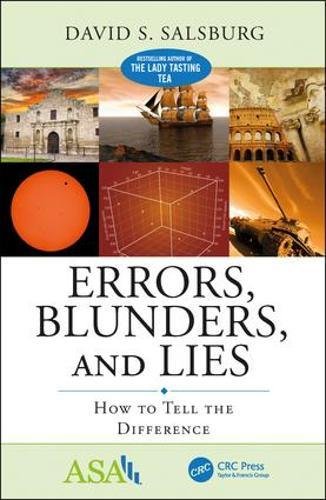

Most ebook files are in PDF format, so you can easily read them using various software such as Foxit Reader or directly on the Google Chrome browser.
Some ebook files are released by publishers in other formats such as .awz, .mobi, .epub, .fb2, etc. You may need to install specific software to read these formats on mobile/PC, such as Calibre.
Please read the tutorial at this link: https://ebookbell.com/faq
We offer FREE conversion to the popular formats you request; however, this may take some time. Therefore, right after payment, please email us, and we will try to provide the service as quickly as possible.
For some exceptional file formats or broken links (if any), please refrain from opening any disputes. Instead, email us first, and we will try to assist within a maximum of 6 hours.
EbookBell Team

4.1
30 reviews
We live in a world that is not quite "right." The central tenet of statistical inquiry is that Observation = Truth + Error because even the most careful of scientific investigations have always been bedeviled by uncertainty. Our attempts to measure things are plagued with small errors. Our attempts to understand our world are blocked by blunders. And, unfortunately, in some cases, people have been known to lie.
In this long-awaited follow-up to his well-regarded bestseller, The Lady Tasting Tea, David Salsburg opens a door to the amazing widespread use of statistical methods by looking at historical examples of errors, blunders and lies from areas as diverse as archeology, law, economics, medicine, psychology, sociology, Biblical studies, history, and war-time espionage. In doing so, he shows how, upon closer statistical investigation, errors and blunders often lead to useful information. And how statistical methods have been used to uncover falsified data.
Beginning with Edmund Halley’s examination of the Transit of Venus and ending with a discussion of how many tanks Rommel had during the Second World War, the author invites the reader to come along on this easily accessible and fascinating journey of how to identify the nature of errors, minimize the effects of blunders, and figure out who the liars are.